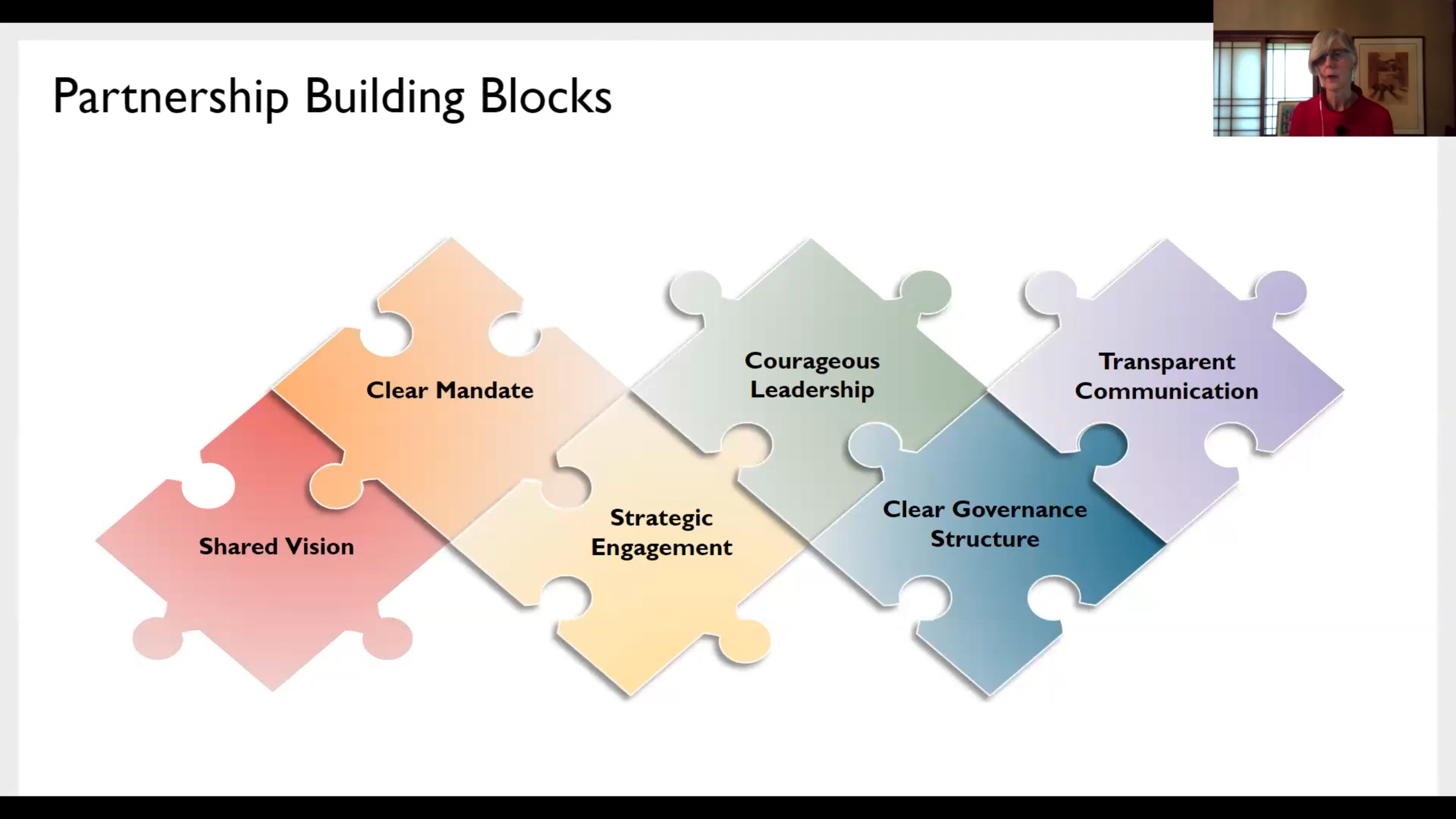Sharing what makes partnerships work at GHTechX
With over 3,800 participants from 105 countries, the Global Health Science and Practice Technical Exchange, which took place virtually from April 21–24, 2021, provided an opportunity for global health experts from a variety of technical areas to share their experience with the public health community.
SHOPS Plus’s partnership lead for India, Aprajita, and regional manager for the program in India, Karishmah Bhuwanee, joined five of their public health peers in a session titled “We're in This Together: Designing Inclusive and Equitable Partnerships for FP/RH Progress” to engage in an online exchange with session participants on the topic of health partnerships.
Ellen Starbird, director of the Office of Population and Reproductive Health at USAID, co-facilitated the 90-minute session with Bhuwanee. Participants touched on some of the key principles of partnership design that foster inclusive, equitable, and sustainable action in pursuit of shared health and development outcomes.
“By partnerships in this case, we mean a formal collaboration among entities to achieve a common goal that is not easily achieved by a single entity,” explained Starbird during the session’s first interactive exercise.
Joining the conversation were Mina Barling (International Planned Parenthood Federation), Marie Ba (Ouagadougou Partnership Coordinating Unit), Beth Schlachter (FP2030), and Alan Jarandilla Nuñez (International Youth Alliance for Family Planning). Aprajita represented the secretariat of the India Condom Alliance, a group supported by SHOPS Plus.
During the session, Aprajita shared three fundamental questions that need to be addressed to ensure a strong partnership:
- Is there a compelling case to collaborate and partner?
- At what time of the partnership forging do you engage with them?
- Who is convening?
“I think what counted in our favor was USAID and SHOPS Plus, which were a neutral and honest broker [sic] of this partnership … So, it was easy for the competitors to trust us to convene and facilitate this partnership,” Aprajita explained of India's Condom Alliance.
The panelists explored the innovations and strategies that fostered collaboration for the partnerships they worked with structuring the conversation around key principles or “building blocks” of partnership.
The five building blocks include: shared vision, clear mandate, strategic engagement, courageous leadership, clear governance structure, and transparent communication.

“These pieces come together in ways that really do reinforce each other and make it possible for the partnership to do what it is designed to do,” Starbird concludes.
For more information about the Condom Alliance, download the SHOPS Plus brief, “What Makes Alliances List? A Landscape Review” or read the full article about the alliance.